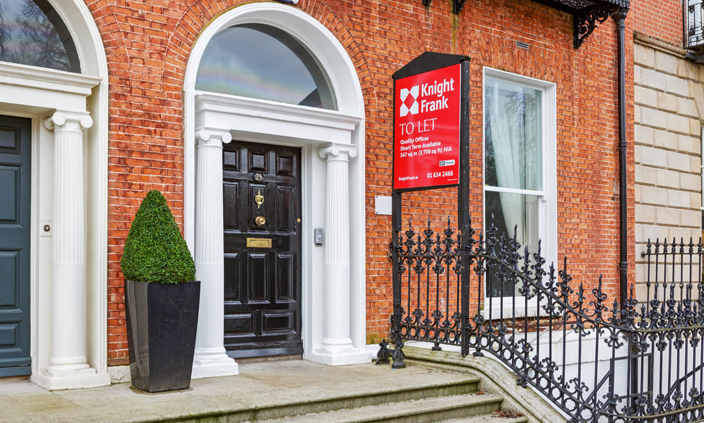
Knight Frank continue their ‘Journey to Zero’
We engaged with the Knight Frank Green Team onsite at their HQ 6 months ago to investigate a way to handle their waste streams in a more effective manner.
Knight Frank’s senior management team under the supervision of Alison O Neill (Associate Director Property Asset Management) decided to investigate a way to recycle more and work to a ‘Zero Waste to Landfill’ goal. A key part of this process was meeting with The City Bin Co. to understand how waste is being created in the building. A major issue was the non-labelling of bins and no other option available than the ‘black sack’.
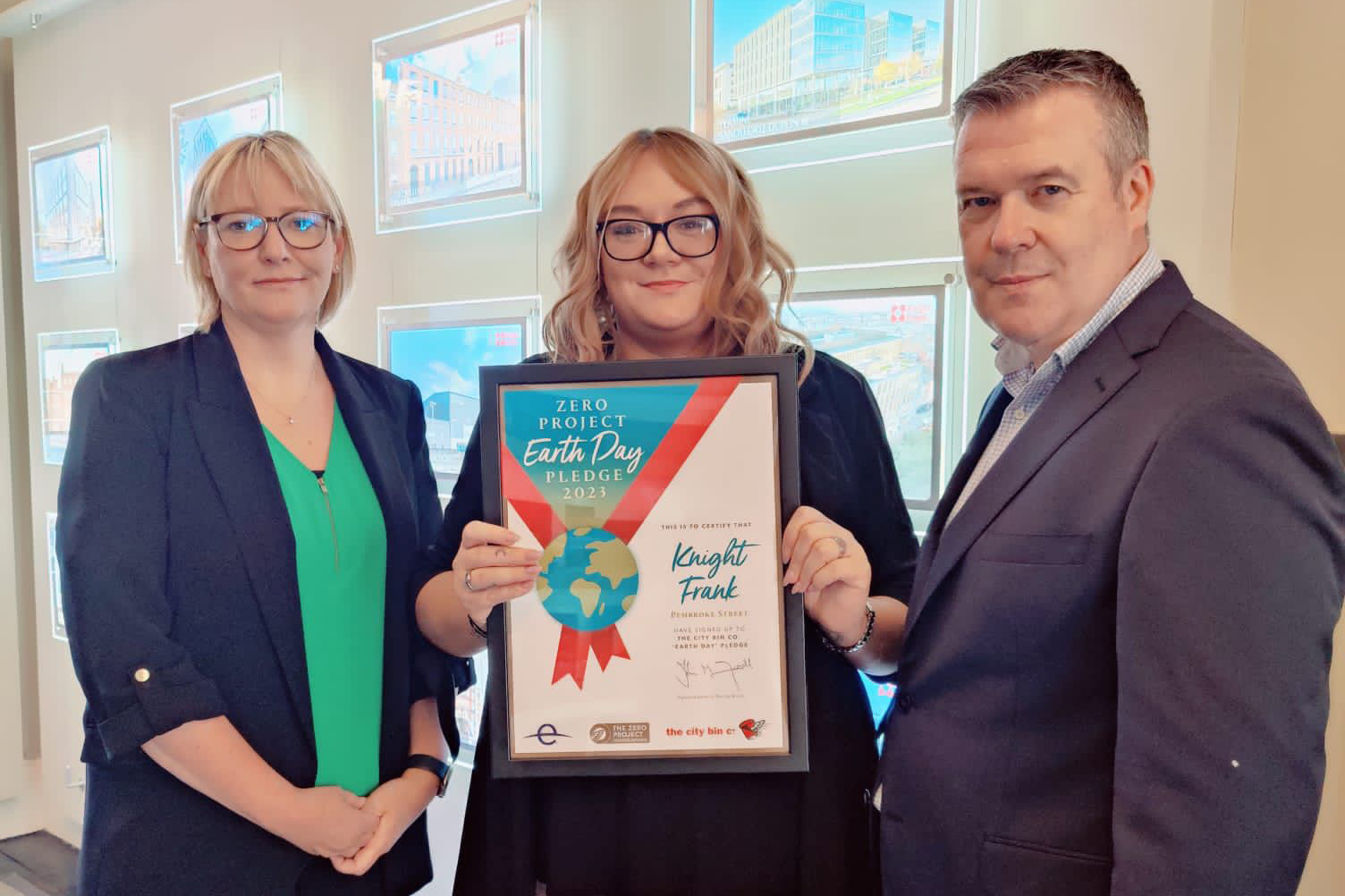
Knight Frank’s Rowena Crowley (Director Property Asset Management) and Anna Koczarska (Facility Manager) with The City Bin Co.’s John Farrell.
Progress over the past few months…
- the introduction of recycling bags
- a new organic separation system the implementation of a compost bin along with the introduction of a glass bin.
- Knight Frank now provide a breakfast and lunch option to all their team at HQ. This reduces the amount of waste being brought in at lunchtime and increases the amount of items being recycled.
The impact of this has been significant…
- They have moved from all waste going to landfill to an effective recycling rate of 69% (as of 31.03.23).
- The team are now better aligned with achieving the goal of Zero Waste to Landfill.
If you would like more information on the Zero Project, please contact John Farrell, The City Bin Co. email john@citybin.com
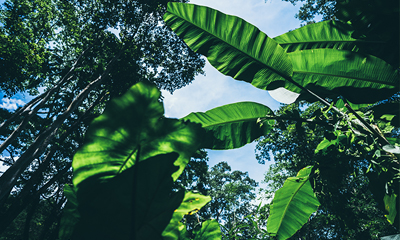
10 ways that businesses can benefit from embracing ‘Earth Day’
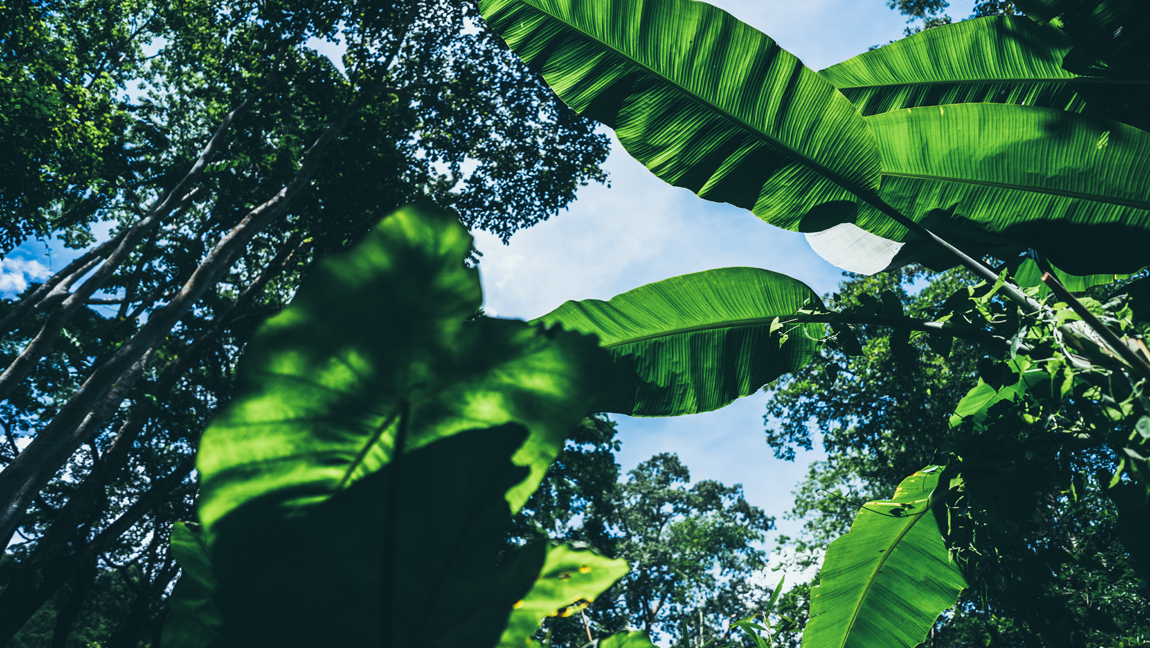
Earth Day is celebrated annually on April 22nd, and it’s a day to raise awareness about environmental protection and sustainability. While it’s traditionally been viewed as a day for individuals to make small changes to reduce their environmental footprint, businesses can also benefit from embracing Earth Day. In fact, businesses that prioritise sustainability and environmental protection are more likely to attract and retain customers, improve their brand reputation, and save money on utilities and materials.
In this blog post, we’ll explore 10 ways that businesses can benefit from embracing Earth Day, from enhanced corporate social responsibility to access to new markets and increased employee engagement. Whether you’re a small business or a large corporation, there are many ways to celebrate Earth Day and reap the rewards of a sustainable business model.
Enhanced Corporate Social Responsibility: Celebrating Earth Day can help businesses highlight their commitment to sustainability and environmental protection, improving their Corporate Social Responsibility (CSR) image.
Improved brand reputation: By embracing Earth Day, businesses can show that they are committed to protecting the environment and reducing their carbon footprint, which can lead to improved brand reputation among customers, investors, and other stakeholders.
Cost savings: Businesses that embrace Earth Day can identify and implement sustainable practices that can reduce energy and water consumption, lower waste disposal costs, and save money on utilities and materials.
Increased customer loyalty: Consumers are increasingly aware of the importance of environmental protection and sustainability, and they prefer to do business with companies that share their values. By embracing Earth Day, businesses can attract and retain environmentally conscious customers.
Access to new markets: Some consumers and businesses are willing to pay a premium for environmentally friendly products and services. By embracing Earth Day, businesses can tap into this growing market and expand their customer base.
Employee engagement: Celebrating Earth Day can improve employee morale and engagement by giving employees a sense of purpose and pride in their work. Employees are more likely to be loyal to companies that prioritize sustainability and environmental protection.
Regulatory compliance: Celebrating Earth Day can help businesses stay ahead of regulatory requirements and comply with environmental regulations. Implementing sustainable practices can also help businesses avoid fines and penalties.
Innovation: Celebrating Earth Day can inspire businesses to innovate and develop new sustainable products and services, leading to new revenue streams and a competitive advantage.
Partnerships and collaborations: Embracing Earth Day can help businesses build relationships with other organizations, such as environmental NGOs and government agencies, and collaborate on sustainability initiatives.
Long-term viability: Embracing Earth Day is not just good for business in the short term, but it also helps ensure the long-term viability of the company by protecting the environment and preserving natural resources for future generations.
—
To see how The City Bin Co. can help with your journey to greater sustainability please contact us
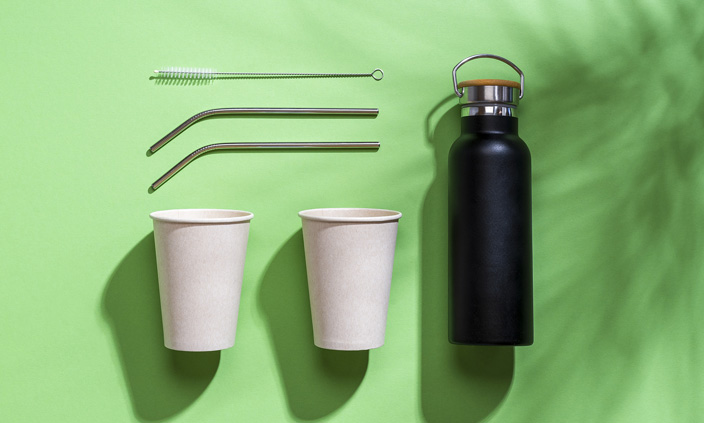
23 Sustainability Tips for 2023
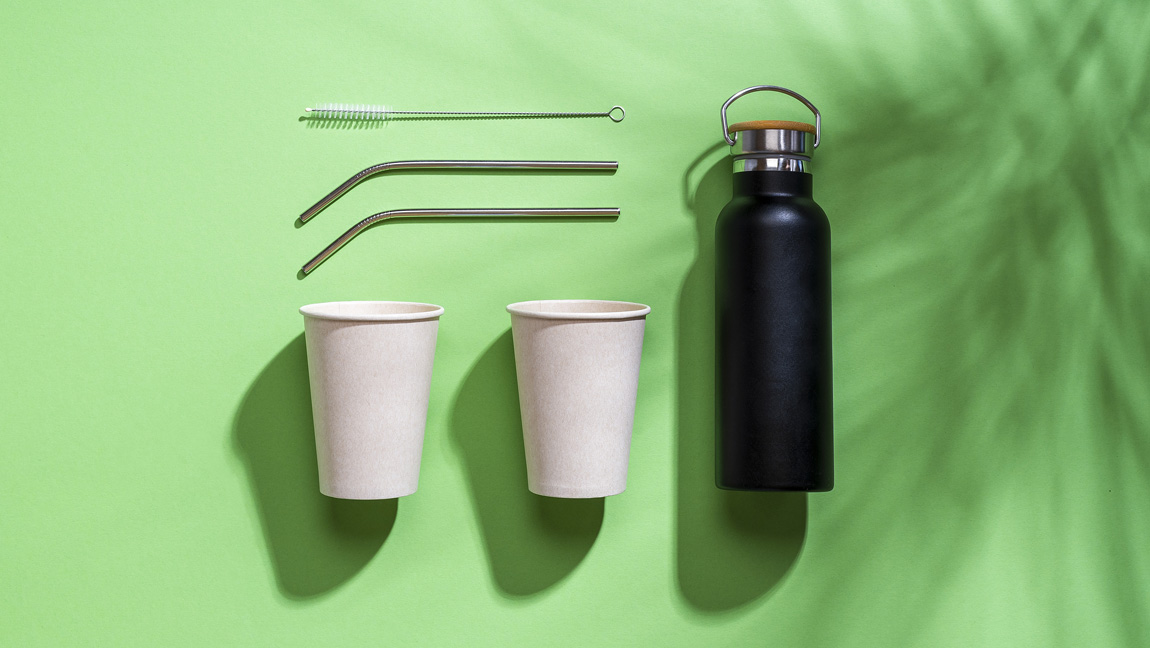
It’s easy to hop on the Sustainable Living bandwagon, and what perfect timing to set sustainability goals as your New Year’s Resolutions, but do you really know why we should be trying to live more sustainably?
Our planet can only produce a finite number of resources – from food to water – and can only withstand a certain degree of greenhouse gas emissions to stay healthy. We only have one Earth and are utterly dependent on it for our survival and well-being. At the moment, we are producing resources, using energy, and creating waste at a rate which isn’t sustainable. People and nature will face severe consequences if our current consumption increases.
Living sustainably is a lifestyle that reduces our environmental impact in many ways, from the food we buy to the daily commute. By making some small changes to your lifestyle, you can reduce your carbon footprint and help to tackle these issues. You simply need to do whatever works for you and remember that the small things matter.
So, here are 23 easy ways to become more sustainable in 2023:
At Home
- Reduce your food waste. Read our blog post for easy ways to reduce food waste at home.
- Proper waste management – recycle and dispose of waste correctly.
- Use LED lighting or CFL bulbs instead of incandescent lighting as it is proven to last longer, which reduces the need to keep purchasing light bulbs.
- Open your blinds and use as much natural light as possible before switching on your light bulbs.
- Turn off your lights when you leave a room.
- Purchase recycled toilet paper with plastic-free packaging.
- Repurpose glass jars. Glass jars are a perfect way to store any homemade jam, sauces, or chutneys.
- Start composting. Learn more about composting at home here.
- Recycle your devices when ready to dispose of. You can donate your old devices to schools and other institutions or drop them to our recycling centre free of charge.
Fashion & Beauty
- Buy second-hand clothes where possible. Invest in better quality items that last longer. Slow fashion trumps fast fashion.
- Choose fashion labels that upcycle waste instead of using virgin materials.
- Upcycle old clothes into new garments. For example, a dress you do not wear can be upcycled into a top and skirt. Instead of throwing away damaged clothing, acquire basic sewing skills to patch holes and sew buttons back on. Or if you have a bigger job, take to an alterations shop.
- Donate your unwanted clothing to give it a second life.
- Choose sustainably packaged beauty products.
- Ditch single-use cotton pads from your makeup routine. It takes 20,000 litres of water to produce just one kilogram of cotton. Switch to a reusable alternative such as muslin cloths or other reusable materials – there are lots of options out there!
- Consider using shampoo bars to reduce packaging.
College & Work Life
- Go paperless with your notetaking! Use your phone, tablet, or computer for taking any notes.
- If you do need to print, use both sides of the page.
- Turn off your computer before leaving (or finishing if you WFH!) work
Lifestyle
- Use stainless steel drink bottles instead of plastic bottles.
- Stop buying birthday, Christmas and thank you cards! Make a hand-written note from recycled materials, these are much more meaningful.
- Choose a sustainable keep cup for your coffee.
- Use public transport. It’s also an excellent opportunity to catch up on reading and other things you couldn’t do if you were driving.
We hope you find some of these sustainability tips helpful and easy to work into your own lifestyle and New Year’s resolutions. If we work together, these small sustainable changes will make the world of difference.
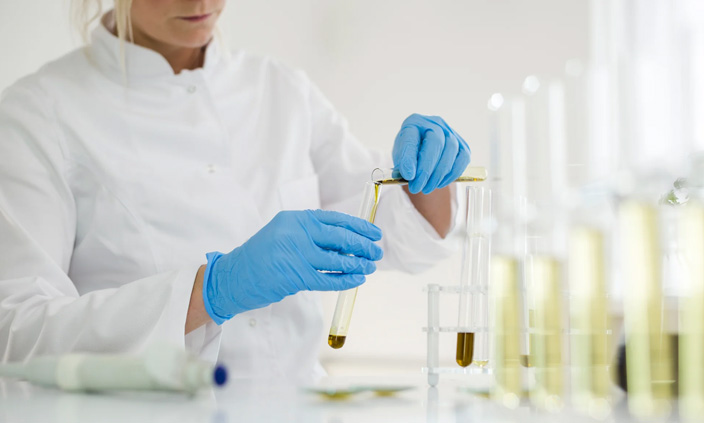
Jazz Pharmaceuticals: The Science of Sustainability
Jazz Pharmaceuticals is an anchor tenant in the main building occupying a number of floors at Waterloo Exchange. The corporate headquarters are located in Dublin, Ireland, with offices spanning the globe from Vancouver to Italy. Jazz is committed to creating a company where the culture reflects three important goals – their purpose to serve patients, be a great place to work, and to live the core values of integrity, collaboration, passion, innovation, and pursuit of excellence.

Why start on this sustainability journey?
Being an anchor tenant in this building Jazz Pharmaceuticals immediately engaged in the Earth Day vision for the building in conjunction with the building manager Martin Carroll of Knight Frank. Knight Frank enjoyed a successful Earth Day last year with another one of the Davy portfolio at 45 Mespil Road Dublin 4. Alison O Neill (Head of Property and Facility Services) introduced The City Bin Co. to the Estate Manager Martin Carroll as they felt a different approach to waste management was possible
The journey within this building started from the time they moved in to consistently innovating change in relation to how waste in handled onsite. Stephen Bateson (Global Workplace Manager, Jazz Pharmaceuticals) and his team have created real change in their workplace to avoid unnecessary waste. In working with The City Bin Co. they have been able to identify clear ways of reducing waste.
Some of these initiatives for change were…
- A town hall meeting was arranged in January 2022 with both the corporate tenants in the building along with the high street traders. The key focus of this meeting was to get agreement for a way forward from all parties that this needed to change and everyone needed to take personal responsibility for their own waste streams.
- Removing black sacks from the cleaning process.
- A solution was found to repurpose old IT equipment.
- Knowing exactly where their bins are and only using recycling, glass and organic bins.
- The removal of desk bins and replacing them with pods of bins on each floor.
- The use of ‘paper only’ recycling bins for all shredded waste.
- If fruit is left over on a Friday, staff are encouraged to bring it home rather than dump it.
What was done & by whom?
Stephen Bateson (Jazz Pharmaceuticals Global Workplace Manager) and his team.
The results?
- Plastic bottled water is no longer used onsite as all staff now have reusable water containers. This has saved over 5,000 plastic bottles last year alone.
- With the exception of wipes and face masks due to Covid, all waste now is either recycled, or disposed of as organic waste.
- Awareness to the team of how to, and why to, recycle
What next?
- To share these successes and future goals internally, and to see how these achievements can be replicated across the other locations.
- To maintain the standard they have achieved and measure against this on a quarterly basis
-
To continue to share their story with their customers.
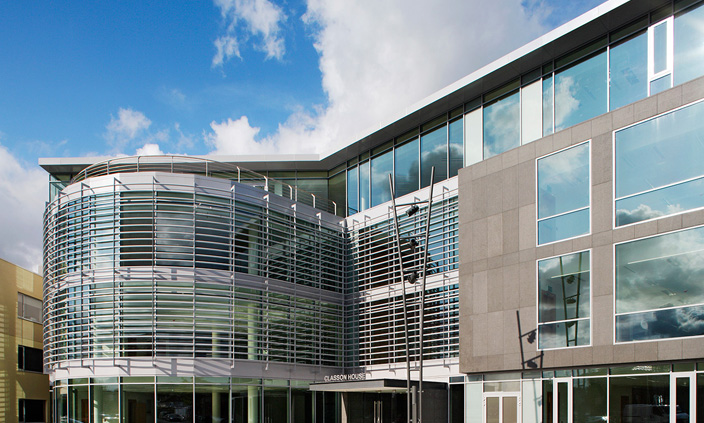
Classon House: Working Together Towards Sustainability
Classon House is a 4 storey modern office building which extends to 75,000 square feet located in Dundrum Business Park Dublin 14. The building is owned by Corum Origin and managed by Ian Bourke and his team from Knight Frank.
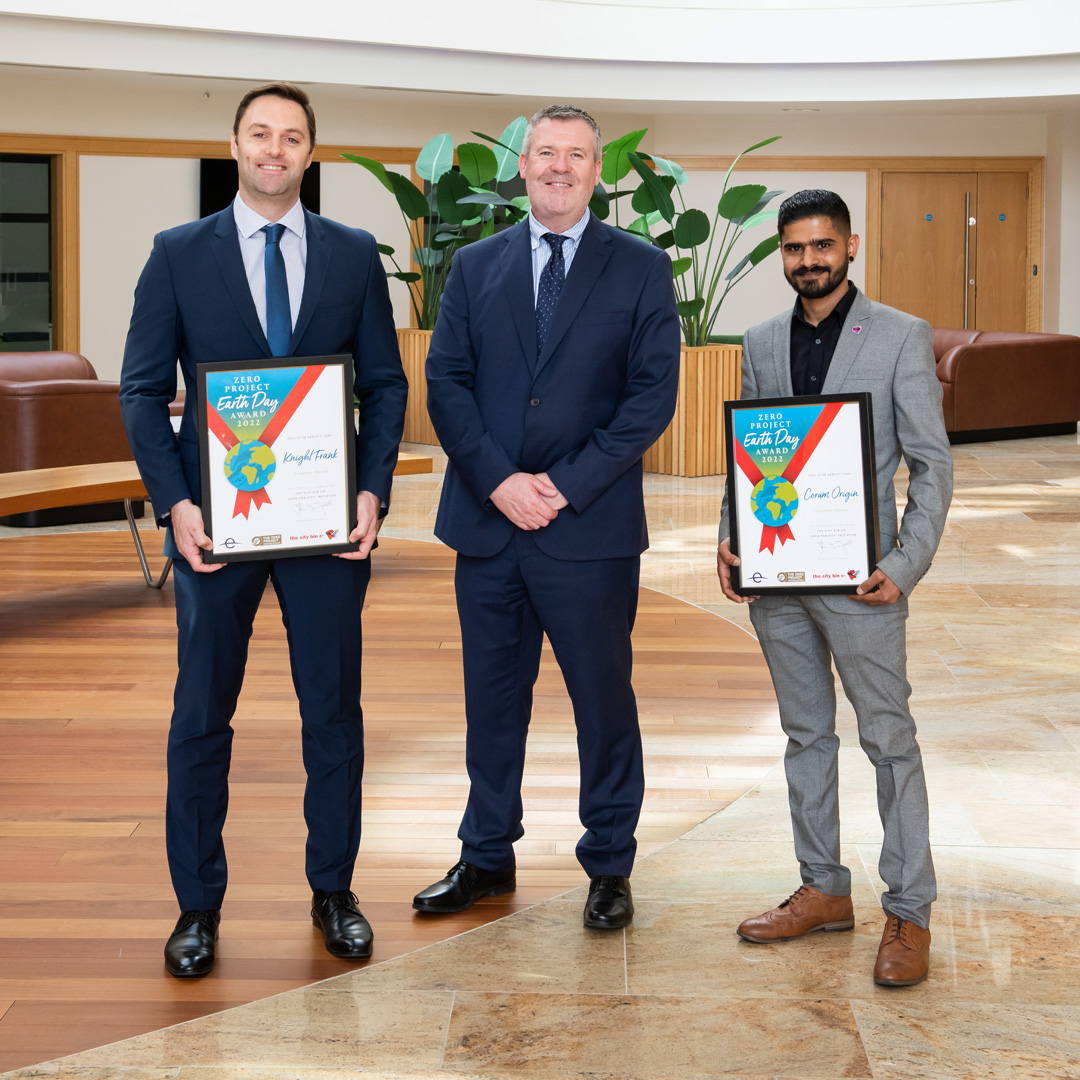
Why start on this sustainability journey?
The journey has been ongoing for the last number of months on this site since Knight Frank decided to try a different approach to waste management on behalf of their tenants to offer a greener way to handle their waste. Before engaging with The City Bin Co. there were a number of different waste contractors onsite. Knight Frank, having worked with John Farrell of The City Bin Co. during Earth Day 2021, wanted to explore the possibilities of creating awareness in-house of a better way to recycle.
Some of these initiatives for change were…
- Using one waste provider.
- Agreeing to a town hall meeting for all keyholders to discuss how they handle waste and how it could be improved.
- Introducing organic bins
- Increasing the number of recycling bins.
- Introducing glass bins.
- The town hall meeting was effectively the Green Team as there was a representative from all businesses onsite.
- The Green Team have worked not only on the colour coding of bins internally for the communal bins but has started to use the recycling option in a real way.
Who was involved in setting up & driving the project?
A representative from all keyholders
1. Cartrawler
2. Webbiz Redacre
3. MBSL Accountants
4. John West
5. JB Barry Engineers
6. Varming Engineers
7. Corum Origin Classon House (building owner)
8. Knight Frank Classon House
What was done & by whom?
The town hall meeting was arranged by Pardeep Singh Gill (Building Manager Knight Frank) under the direction of Ian Bourke Knight Frank (Property and Asset Manager).
The results?
- All cardboard and plastic generated on-site are 100% recycled.
- As food bins are now in play food/organic waste collections are up 200% on last year.
- The setting up of the Green Team now has a purpose and the key recycling messages are shared at every opportunity with new and existing team members.
- All waste being diverted from landfill.
- Recycling initiatives are discussed when the team meets as to how and why they do what they do. More recycling bins are to be put in this month and general waste bins are to be removed.
What next?
- No black sacks allowed in bins by Earth Day.
- To share the learning of recycling with the Green team for the end of Q2 this year and compare the significant changes on last year.
- WEEE waste facility set up for all tenants.
- Internal walk-through of each key holder by end of May 2022 to confirm the best use of messaging for internal bins.
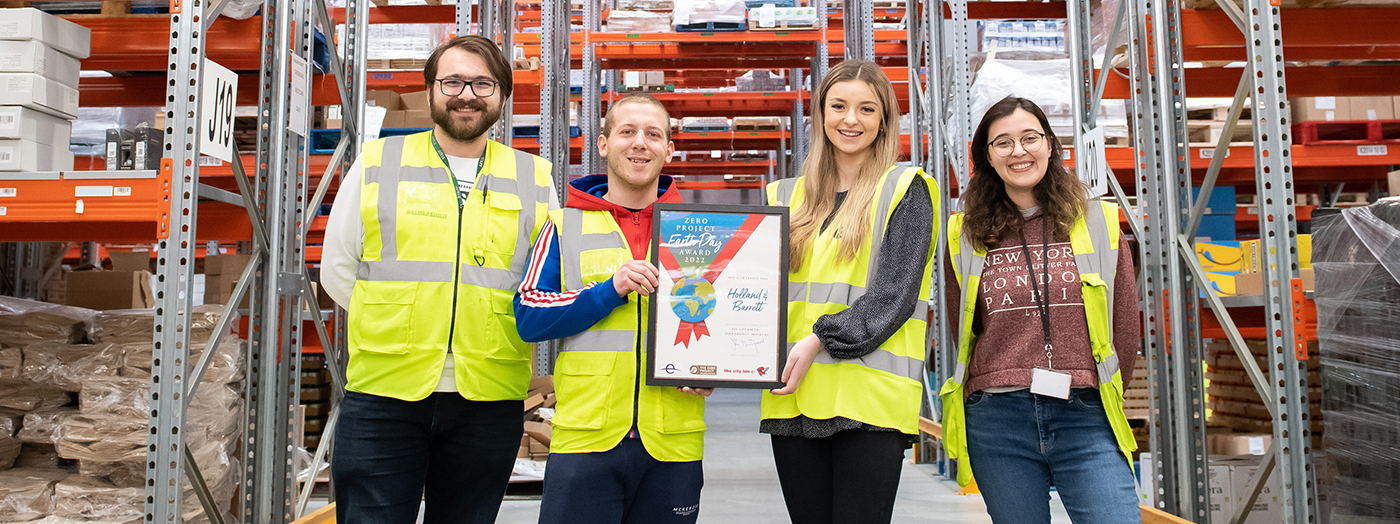
Holland & Barrett: Doing good for you…and for the planet
Holland & Barrett Distribution Centre is located in Dublin Airport Logistics Park. It uses its 66,000 sq. feet to stock and distribute all shop items across its 83 stores in The Republic of Ireland.
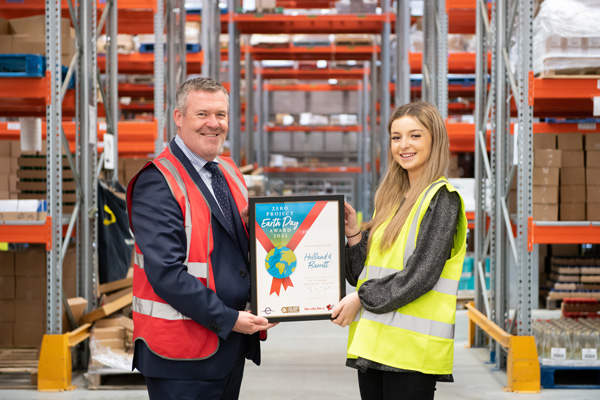
Why start on this sustainability journey?
The journey has been ongoing for the last 6 months and has been consistent in its expectations across learning excellence and Innovation both within stores and the warehouse. The project lead within Holland and Barrett is Sarah Durkan, the EHS compliance officer for ROI and NI. Sarah has also taken the lead with the Holland and Barrett Green Team.
A number of months ago having changed waste contractors to The City Bin Co. Holland and Barrett wanted to examine a greener way of handling waste. Before engaging with The City Bin Co. all waste was simply being treated as landfill.
Holland and Barrett recognised that habits needed to change to make it greener and more sustainable. A lot of initiatives have been successful in the short amount of time since the project commenced.
Some of these initiatives for change were…
- No general waste bins on site. A selection of bins are now installed – organic for food, glass for glass, a designated timber only skip for timber and our unique FELfor light industrial waste that is source segregated at a recycling facility.
- Cardboard and Plastic balers are now installed and all of the specific waste types are baled accordingly and collected free of charge.
- Colour coded bins are now installed in the canteen area for all staff to segregate food waste from recycling. Lunch boxes are used by staff and this has dramatically reduced the amount of tinfoil going into bins.
- The Green team have added to the Induction manual for new employees the expectations that Holland and Barrett have for the way individuals new staff members are responsible for their own recycling.
- The Green Team have introduced recycling information around the new bins onsite.
- Another key initiative here is that when teams do meet recycling is always discussed where appropriate. A key feature in this has been the ordering of new labelling for recycling receptacles at the end of each storage line.
Who was involved in setting up & driving the project?
The project lead is Sarah Durkan.
The results?
- All cardboard and plastic generated on-site are 100% recycled.
- Food/organic waste collections are up 100% on 2021.
- The setting up of the Green Team now has a purpose and the key recycling messages are shared at every opportunity with new and existing team members
- All timber onsite is now being source segregated. This new recycling stream is again up 100% on last year
- All waste is diverted from landfill.
What next?
- The canteen to use only biodegradable materials by end of 2022.
- To share the learning of recycling with all stores in the ROI by end of 2022
- A quarterly review in conjunction with The City Bin Co. team.
- Supplying the employees with their own water and food containers to reduce all non-recycling food coverings by end of 2022.
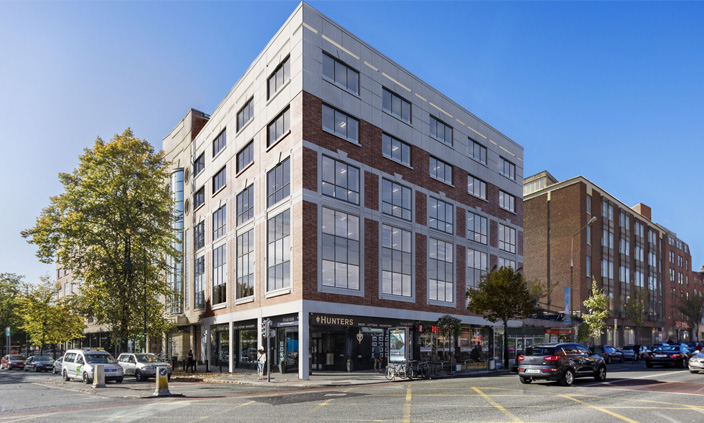
Waterloo Exchange: Leading the way in Sustainability
WATERLOO EXCHANGE is located at Waterloo Road Dublin 4. It is 55,000 sq. feet and is a cornerstone building at the junction of Waterloo Road and Baggott St Dublin 4. Waterloo Exchange is the second Davy site that Knight Frank has chosen to work with The City Bin Co. on having introduced us to 45 Mespil Road last year, culminating in a positive Earth Day 2021 success story.
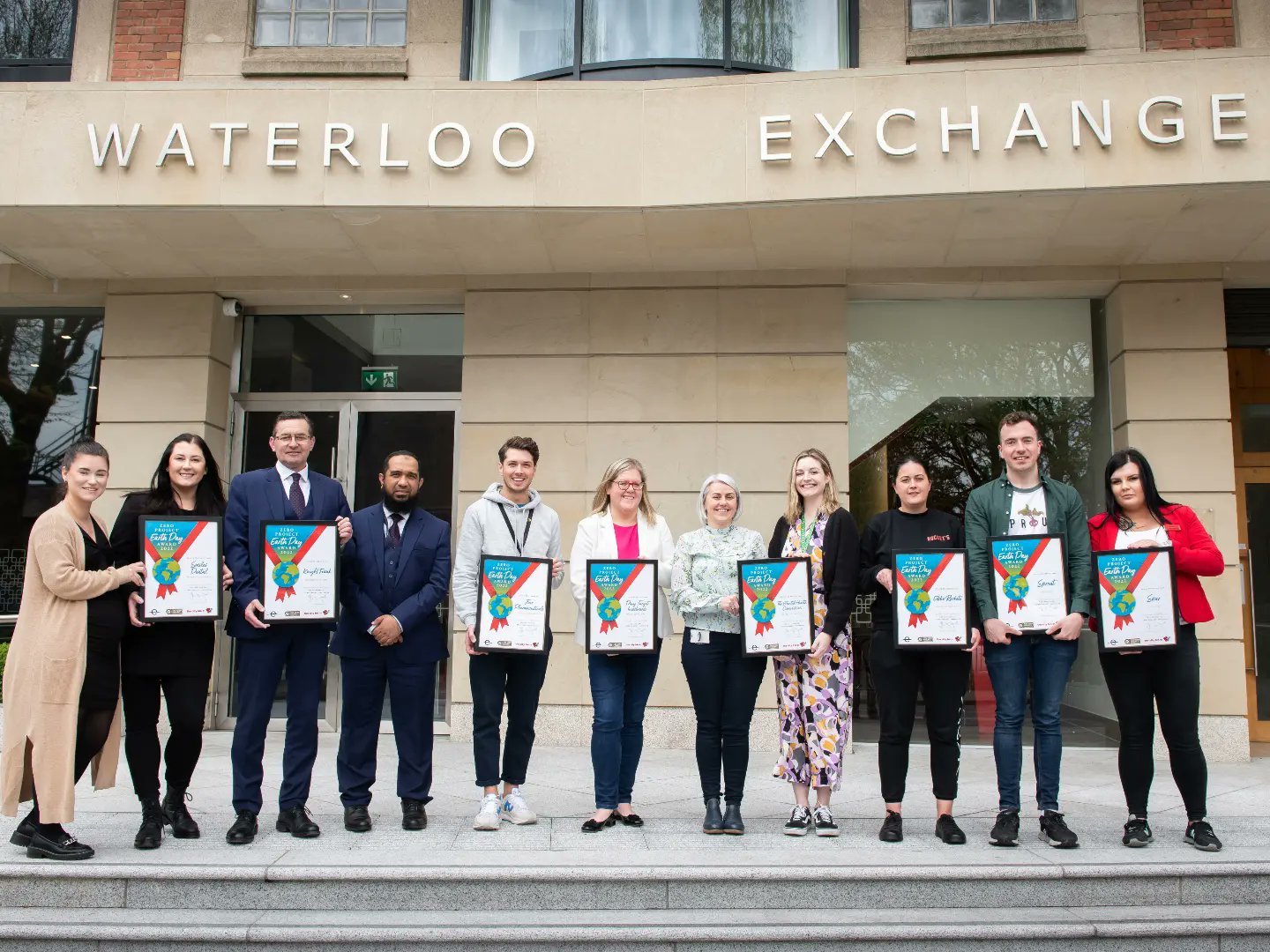
Why start on this sustainability journey?
Knight Frank enjoyed a successful Earth Day in 2021 with another one of the Davy portfolio at 45 Mespil Road Dublin 4. Alison O Neill (Head of Property and Facility Services) introduced The City Bin Co. to the Estate Manager Martin Carroll as they felt a different approach to waste management was needed. The journey has been ongoing for the last 3 months and has been consistent in its expectations across learning excellence and innovation both within the main building with its tenants and the wider building that has branded individual high street stores. The project lead within Knight Frank is the building manager Martin Carroll. Martin has a vast wealth of knowledge of building management and he wanted to use this to work with a waste company that could lead a change in the strategy of waste management for the building. A number of months ago having changed waste contractors to The City Bin Co. Martin wanted to implement more sustainable waste management practices. Before engaging with The City Bin Co. all waste was stored in one binstore area. Anyone could effectively use whatever bin they wanted.
Some of these initiatives for change were…
- A townhall meeting was arranged in January 2022 with both the corporate tenants in the building along with the highstreet traders. The key focus of this meeting was to get agreement for a way forward from all parties that this needed to change and everyone needed to take personal responsibility for their own waste streams.
- Once the relevant parties were onboard with the process, all commercial tenants came onboard with The City Bin Co. and individual accounts were set up.
- All commercial tenants agreed a collection schedule that would suit their own businesses.
- All parties concerned agreed to take a full set of bins for general, organic and recycling waste streams. As a result of implementing lockable bins everyone could see what actual waste they were generating along with seeing what was their actual recycling rate.
- All parties agreed to start using organic bags for food waste and again to use their own bins.
- All parties now have colour coded lockable bins.
Who was involved in setting up & driving the project?
The project was initiated by Knight Frank on behalf of the client Davy.
The results?
- All cardboard and plastic generated on site are 100% recycled.
- The corporate food waste collections are up over 100% on last year with the individual high street stores now have greater visibility of waste habits.
- The setting up of the Green Team now has a purpose and the key recycling messages are shared at every opportunity with new and existing team members.
- Everyone pays for their own waste. The more they recycle and the less food waste they generate – the less they pay.
What next?
- To continue with the recycling effort and install a baler in by end of 2022.
- To share the learning of recycling with all stores on a quarterly basis in a townhall environment.
- To continue to demonstrate that there is a cheaper, and greener, way to handle waste.
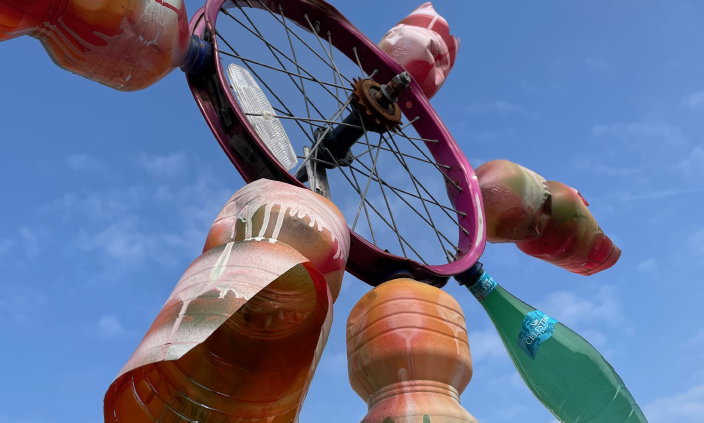
Ballymakenny College: an A+ in Sustainability
BALLYMAKENNY COLLEGE is a secondary school located in Drogheda County Louth. Since opening in 2014 the school has grown from a student body of 63 students and 9 staff to over 920 students and over 90 staff members with its main driving force being Principal Alan Mynes. We caught up with the Environmental Team in advance of Earth Day…
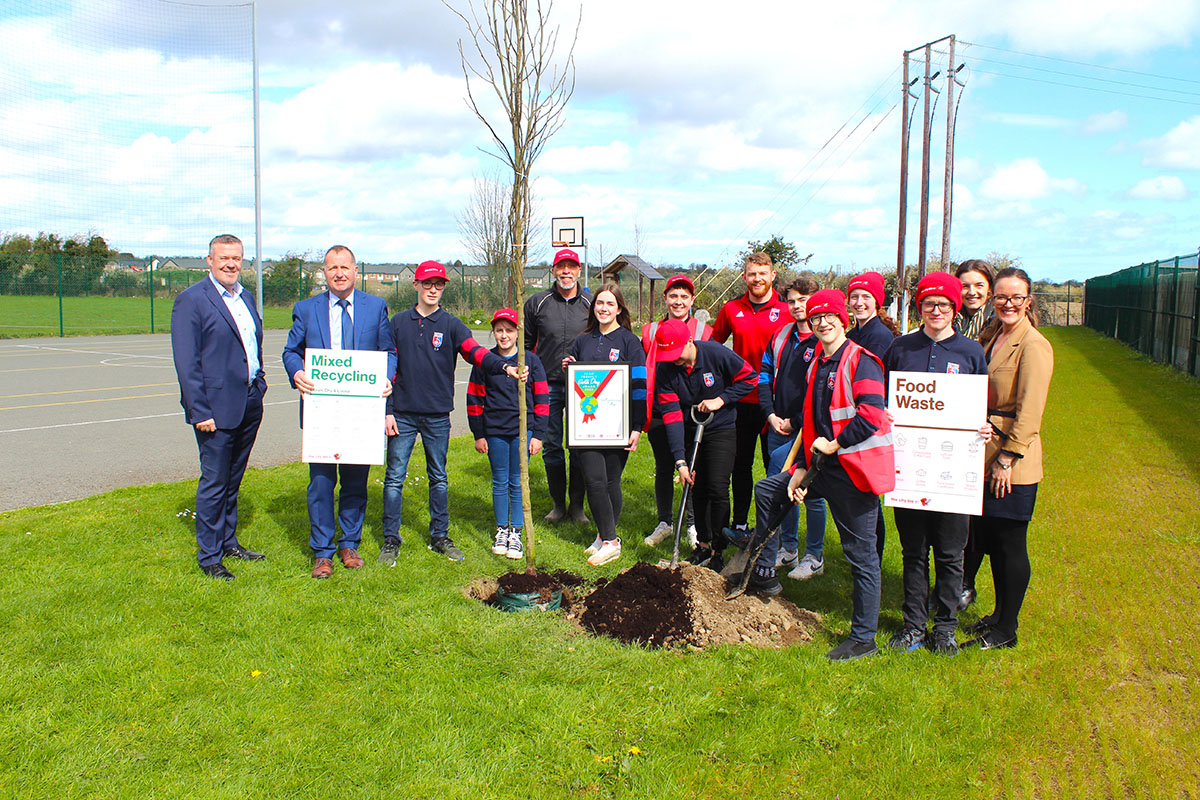
BK2
Why start on this sustainability journey?
The journey has been ongoing and has been consistent in its expectations across learning excellence and Innovation.
- The reduction in the amount of water needed by the school to function. A water harvesting system has been implemented and this rainwater is now used in many ways but most specifically in latrines across the school. This has and continues to reduce the amount of wasted water onsite by about 70%
- The schools boasts a wonderful garden. This has been created by staff and students alike and a main feature of the garden is a seated area where people can take a timeout for mindfulness or just a chat with some of their colleagues. Wild flowers and any amount of vegetables are grown onsite. This is ongoing and the vegetable follow the seasons. Anything from potatoes to fruit trees are harvested.
- The school even has it own chickens… 3 in fact. Their names are Bally, Mak and Kenny.
- The canteen now has moved away from plastics and only used biodegradable product to serve out the breaks and lunches.
Who was involved in setting up & driving the project?
The City Bin Co. were invited this year to start handling waste onsite. The school now has general waste, recycling and organic bins to handle all waste.
- Ballymakenny collaborated with John Farrell from The City Bin Co. to come up with a plan to divert waste from landfill. Alan Mynes Principal, Caroline Toole (DP) and other staff members Collie Joyce Ahearne, Philip Bergin and Peter Kermath along with the student Environmental Team all continue to share an equal role in the success of the project
What was done & by whom?
Initially Peter Kermath, the school’s Caretaker met with John Farrell to facilitate the changeover to The City Bin Co.
- The Environmental Team made up of teachers and students collaborated and formed steps to make the college greener.
- Both teachers and students alike came up with the garden concept, Principal Alan Mynes along with the board of management brought the water harvesting to a reality along with removing plastic bottled water.
The results?
Some key results today
- A huge 45,000 plastic bottles have been diverted out of the school
- The college is an A-rated building with sustainable features including
– Energy saving lighting
– Vampire technology that reduces non-essential use of electrical power
– A building management system that ventilates and heats the school
– Rainwater harvesting saving 440,000 litres of water per year. - All general waste being diverted from landfill
What next?
- The canteen by end of 2022 to be an only biodegradable facility
- The compost heap in the garden to be fully functioning for all compost for the garden and vegetable patch by end of school term
- A tree planting ceremony this week to mark the success of the project to date
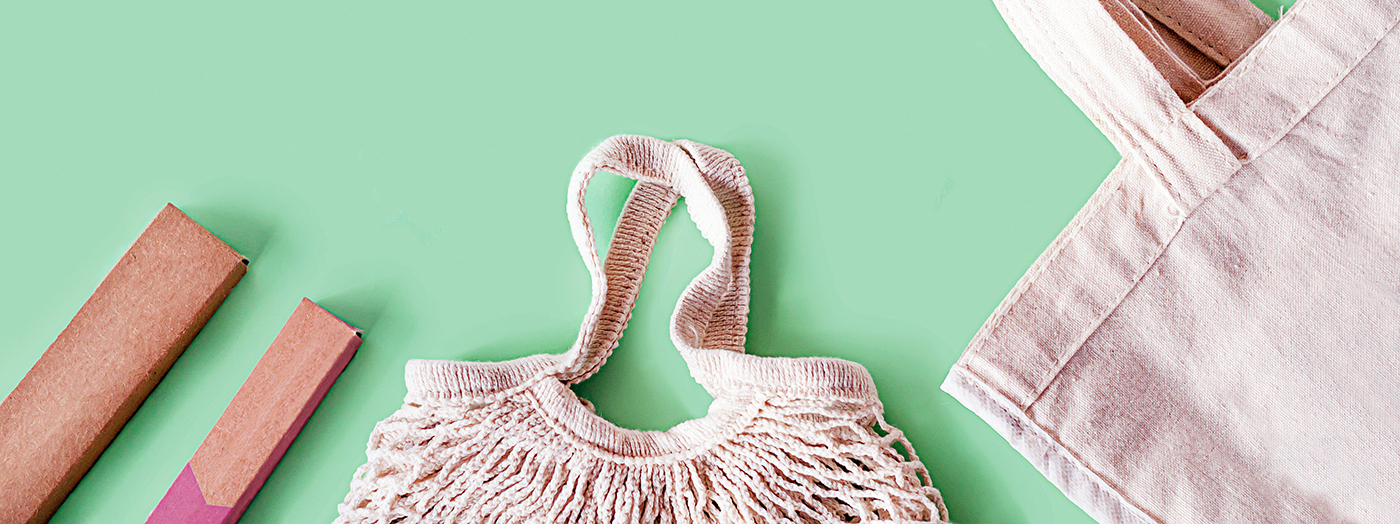
Checklist to a More Sustainable Home
Building materials and methods: If you’re planning on doing any building work in your home, consider how you can do this work with sustainable materials and methods. Things to consider investing in include passive solar design, smart metering, high performing windows and doors, sustainable roofing etc. If you are doing any building work, reuse and recycle building waste as much as possible.
Insulation: The better insulated your home is, the more likely it will have a higher BER rating. Although insulating your home can be costly, you could save money in the long run by reducing your heating bills. The Sustainable Energy Authority of Ireland (SEAI) provide various insulation grants including grants for attic; internal and external walls; and cavity wall insulation.
Energy Source: Have you ever considered switching to green energy? Having solar panels fitted to your home can be expensive but could save you money in the long run. The SEAI provide grants for people who want to use renewable energy, such as the solar electricity grant and the solar water heating grant.
Energy consumption: Are there appliances in your home that you could manage without and which require energy usage? Rather than using the dryer to dry clothes, could you dry your clothes on a line in the garden or on a clothes horse indoors? Likewise, could you wash the dishes by hand rather than use the dishwasher?
Windows and doors: If you have old windows and doors that aren’t glazed well, you could find your home has lots of draughts. To limit the amount of warm air escaping, you could use a draught seal which is an easy and cheap way of sealing your windows. If you had the money to replace the windows with newer ones that would be ideal, and you’ll likely reap the benefits when it comes to your energy costs.
Ventilation: Place a chimney balloon in your fireplace when it’s not in use will ensure heat doesn’t escape up the chimney. You can also check your air vents in the house. They may need to be cleaned or replaced to ensure better airflow in your house.
Lighting: Replace old light bulbs with energy-efficient LED bulbs. This will reduce your electricity bill and will cut down on your carbon footprint. Turn off lights when they are not required as this will also reduce your energy consumption.
Appliances: When buying new appliances such as refrigerators and washing machines, try to buy the most energy-efficient options. The more energy-efficient the cheaper it will be to run. When discarding of old or broken appliances, try to do so ethically by recycling at a registered recycling centre.
Decorating: If you are decorating your home, use eco-paints. They emit fewer toxins and are more environmentally friendly to manufacture. When buying furniture for your home consider natural options such as wood or leather. Although they might be more expensive than synthetic options, they could last longer and are also less toxic to produce.
Cleaning: An easy and cheap way to ensure you’re living more sustainably is to change your cleaning products to eco-friendly alternatives. Many household cleaning products have toxins that eco-friendly versions don’t have. All supermarkets have environmentally friendly sections in their stores, so you don’t have to shop elsewhere to avail of these products.
Recycle waste: Reduce single-use plastics and make sure to recycle as much as possible. You could also try to buy food that isn’t in any packaging to reduce the amount you have to recycle yourself. Consider getting a compost bin in your garden where food waste can go, again reducing your waste disposal going to landfill. Likewise buying products that are made from recycled materials is better for the environment too.
Water saving: Have you considered installing a water harvester? They are inexpensive and a great way of conserving and collecting and storing rainwater for alternative uses such as watering your plants and cleaning your car.
Get advice: From podcasts, to blog articles and the internet, there is a whole host of information out there on how to live more sustainably and the benefits to our environment, health and wellbeing. Pick up tips and advice from others who are living sustainably.
Change your habits: When it comes to incorporating more ethical and sustainable practices, we can all make a difference. Simple changes in our attitude and thinking can go a long way to ensuring our homes are sustainable and eco-friendly.
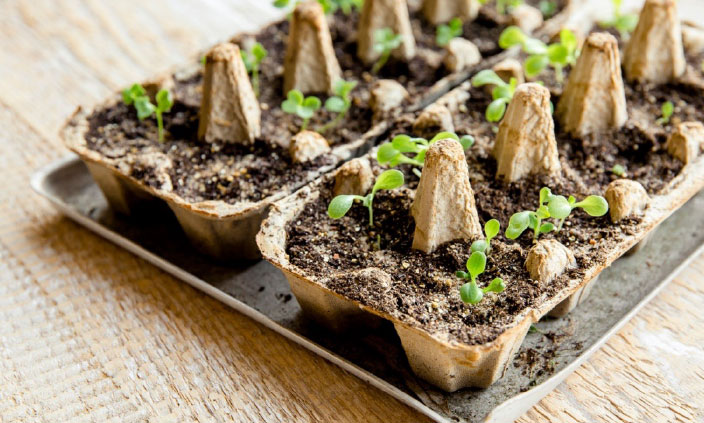
Our Guide to Repurposing Old Household Items – 7 Upcycling Ideas
October is National Reuse Month, a great opportunity to learn more about reusing, repurposing, and upcycling unused household items. These three words can be encapsulated in one simple definition; taking a thing you are not using and putting it to another use.
Now we’re not telling you to hoard all your unused household items until you have rooms filled with junk. However, if you find you have some of the following products lurking around your home, below are 7 ideas for repurposing everyday household items you probably haven’t considered!

T-shirts
According to Oxfam Ireland, Irish people dump 225,000 tonnes of clothing every year. Instead of throwing away old t-shirts, why not repurpose them into tote bags that can be used for groceries etc. To create a reusable shopping bag; cut the sleeves and neck out of the t-shirt, cut strips along the bottom hem, and tie the strips of fabric together (you can cut the fringing off if preferred).

Wellies
Repurpose outgrown wellies and make colourful garden plant pots – a simple upcycling project that the whole family can get involved in.

Single Socks
We all have sock singles lying around the house, and where their mates disappear to is an unsolved mystery in every household. Unless you are rocking the odd socks, repurposing them is a great idea. Odd socks make great rags that you can fit your hand into to clean anything around the house, from blinds to toilets, to ceiling fan blades.

Glass Jars
Glass jars can be upcycled into beautiful tea light holders. Create a stained-glass effect on your glass using Sharpies and pop a tea light inside.

Egg Cartons
Egg cartons are another disposable household items that can be upcycled to make a few useful items. One option is to repurpose your used egg cartons into an organiser for small household items, such as jewellery, office supplies or beads.
Another useful household item that can be made from paper egg cartons is seed sprouting containers. Split up your egg carton into single seed pots and plant your seeds. Once the seedlings get big enough to plant, simply wet the whole egg carton cup and plant it into the soil. The soggy paper egg carton will break down over time in the dirt.

Newspapers
Reuse newspaper as a paper towel when cleaning glass and mirrors. Newspaper won’t leave behind any fibres or residue, just a streak-free shine!

Cardboard Toilet Paper Rolls
Toilet paper rolls are something we all have excess of at home. Of course, you can throw these in the recycling bin, however repurposing your paper rolls to make these electronic cord organisers is another great option and will solve the battle of the tangled wires.
Let’s celebrate National Reuse Month by reusing, repurposing, or upcycling some household items that often get discarded without a second thought. We’d love to see pictures of your recreations!